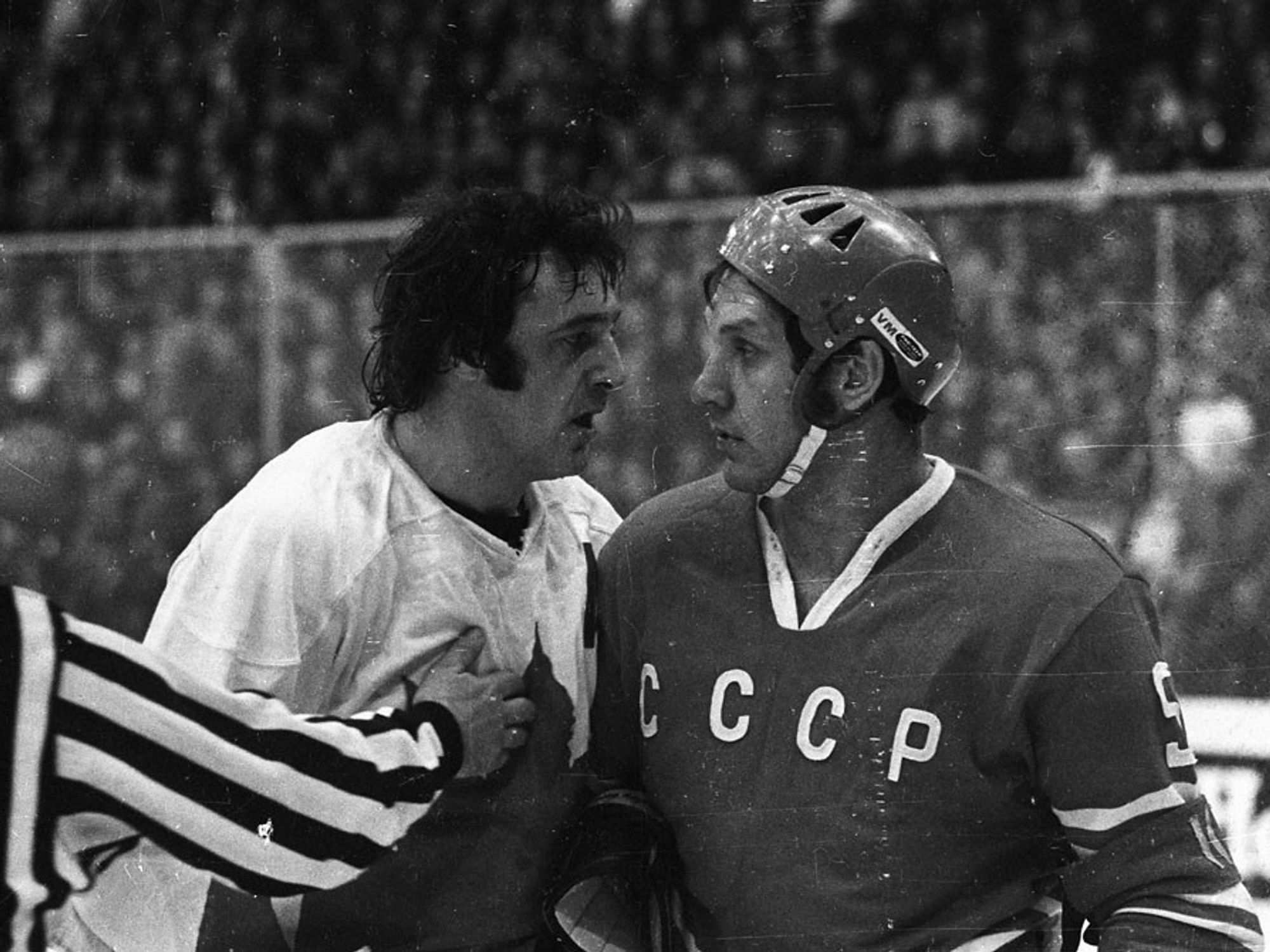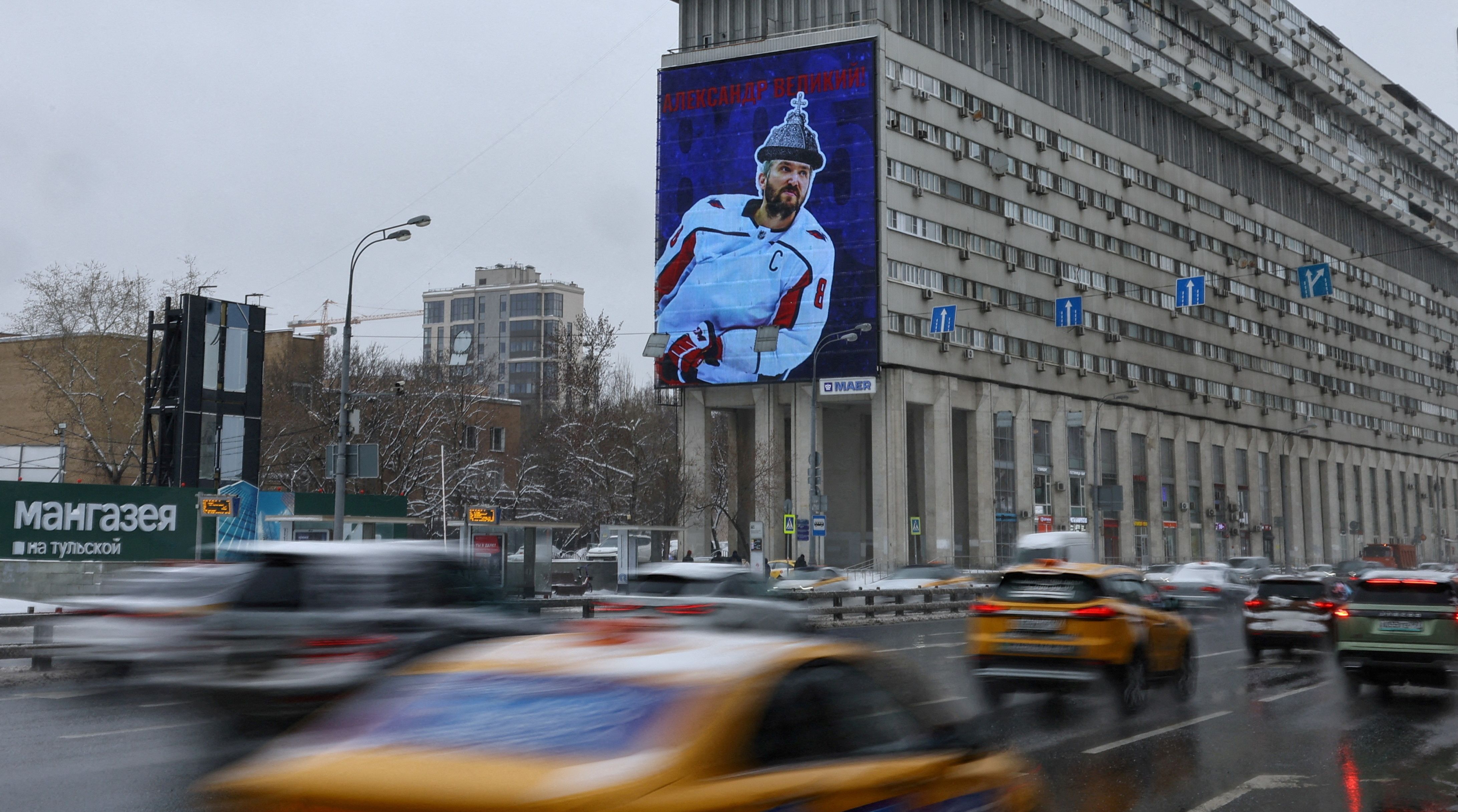Last Sunday, 39-year-old Russian ice hockey star Alex Ovechkin playing for the Washington Capitals surpassed Canadian-American Wayne Gretzky’s National Hockey League scoring record, netting his 895th goal.
What elevated this seismic moment in hockey history beyond stats was Gretzky’s response. “The Great One,” as he has been known throughout his career, has been a true class act — publicly cheering Ovechkin on and offering warm praise devoid of ego even as he saw his own record shattered.
Gretzky’s grace is a throwback to a time when hockey transcended the rink, serving both as a proxy for Cold War tensions and fleeting détente. As a kid catching the tail end of Gretzky’s career from behind the wrong side of the Iron Curtain in Riga, Latvia, I saw those echoes firsthand.
In 1972, for the first time, the Soviet team disembarked in North America for pioneering “Summit Series” which pitted the USSR’s best against the NHL stars playing for Canada and the United States. While Canada narrowly clawed past the Soviets on that occasion, in 1981, the “Red Machine,” a veritable juggernaut that the Soviet team has become by then, thrashed Canada 8 to 1 at the legendary final of the Canada Cup, in Montreal, no less.

I watched that game on TV, wide-eyed, as the Soviets’ clinical precision dismantled the star-laden, intimidating Canadian team, captained by Wayne Gretzky. Back in Moscow, Soviet propaganda appropriated their team’s success as evidence of the superiority of the collectivist Soviet ways over Western individualism. It wasn’t just about hockey — it was a superpower bravado on ice.
But hockey didn’t just mirror the era’s rivalries — it softened them too. Between face-offs, involving occasional fistfights on the ice, players from these purported opposing ideological camps shook hands and swapped jerseys. Some even forged enduring friendships, including touring each other’s homelands. It felt like détente in action: competition, yes, but mutual respect beneath the gloves.
Fast forward to 2025. With Donald Trump back in the White House and tentative efforts to melt the ice between the United States and Russia, hockey diplomacy has come back to the fore. In March, amid a phone call about Ukraine, Russian President Vladimir Putin, ever eager to flex hockey for nationalist gain, floated the idea of the hockey matches between NHL stars and Russia-led Continental Hockey League (KHL) talent, with games in both the U.S. and Russia. Trump, ever the dealmaker, backed the idea, perhaps anticipating “huge ratings” as an additional prop.
History knows examples of sporting events fostering détente between the rival nations. Think of ping-pong diplomacy with Communist China in the early 1970s which paved the way for President Richard Nixon’s ground-breaking visit to Beijing in 1972. The term “ping pong diplomacy” stuck because it captured how sport can bridge geopolitical divides.
Another example are the soccer World Cup matches between the U.S. and Iran in 1998 and 2022. Unlike the tennis games in China and hockey matches between the U.S., Canada and Soviet Union in North America, the U.S. – Iran encounters were the results of blind draws, meaning they were not explicitly intended to be diplomatic events. But even so, the human interaction between the peoples of two nations often at geopolitical loggerheads helped to somewhat soften mutual perceptions (Iran won 2 to 1 in 1998, while the U.S. emerged victorious in 2002, 1-0, with the winners graciously showing respect to the losers on the pitch after each game).
Can Trump – Putin hockey diplomacy smooth the way to a more general thaw? Unlike in the 1970s and early 1980s, such games, if they materialize, won’t be referendums on the comparative strengths of different political systems. After all, Ovechkin, born in 1985, growing up in post-Communist Russia and achieved stardom in America, is as much a product of the “capitalist” NHL as is Gretzky. But it can help mend fences in a more traditional sense of managing a great power competition — as was also the case with the original détente in 1970s, in addition to the ideological dimension.
There will be hurdles along the way. Russia has been and remains banned from the International Ice Hockey Federation since 2022 for its invasion of Ukraine, which precludes its participation in international hockey championships. Even if the U.S. were to be ready to use its influence to lift the ban on the Russians, other leading hockey nations could easily balk at the idea for political reasons — think of Sweden, Finland or Czech Republic. The liberal hawks who’d seldom miss an opportunity to disparage diplomacy with adversaries were quick to assail Trump for allegedly giving Putin a soft power gain “for free.” A coalition of Ukrainian-Canadian and Ukrainian-American organizations called on the NHL to unequivocally reject any collaboration with the KHL.
There is also a asymmetry in stakes and expectations: the prospect of the games is seen by the Kremlin as a way to symbolically skate back to the great powers league — a vision cherished by Putin. The White House downplayed that enthusiasm, with Press Secretary Karoline Leavitt saying that the U.S. “is more interested in securing the peace in Ukraine right now than scheduling hockey games.”
Indeed, the hockey games, in themselves, won’t stop the war in Ukraine. However, they are an approachable way to restart building confidence and improve the overall climate between Moscow and Washington that could be leveraged in efforts to bring about a diplomatic end to the bloodbath and usher into a new era of a more restrained, managed competition.
Gretzky and Ovechkin exemplified graciousness and respect that transcend geopolitical rivalries. Let’s see if Trump and Putin can lace up their diplomatic skates and do the same.
















